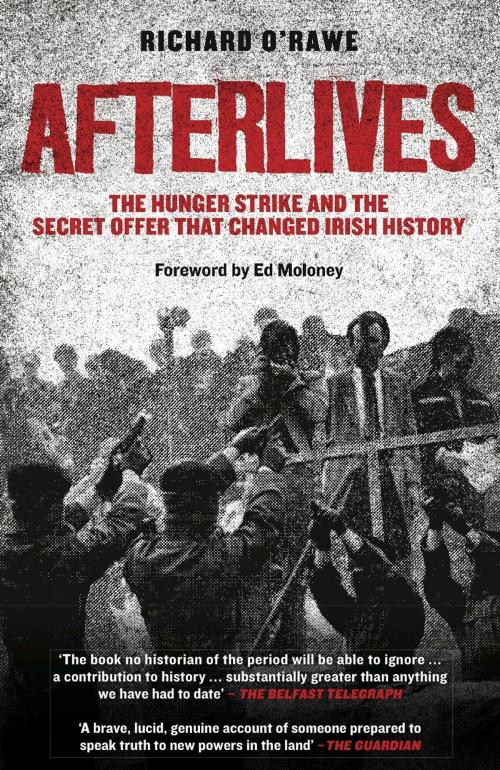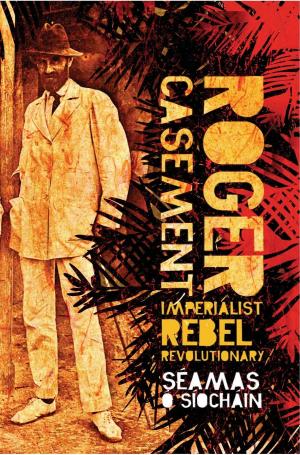Afterlives
The Hunger Strike and the Secret Offer that Changed Irish History
Nonfiction, Social & Cultural Studies, Social Science, Crimes & Criminals, Criminology| Author: | Richard O'Rawe | ISBN: | 9781843512165 |
| Publisher: | The Lilliput Press | Publication: | September 1, 2011 |
| Imprint: | The Lilliput Press | Language: | English |
| Author: | Richard O'Rawe |
| ISBN: | 9781843512165 |
| Publisher: | The Lilliput Press |
| Publication: | September 1, 2011 |
| Imprint: | The Lilliput Press |
| Language: | English |
'...a compelling, powerful and virtually incontestable case that in the summer of 1981 Gerry Adams and those around him thwarted a proposed settlement of the IRA/INLA hunger strikes' Ed Moloney, author of A Secret History of the IRA.
'Afterlives by Richard O'Rawe (Lilliput Press) is the history of the deal that could have ended the hunger strikes in 1981 and is the book no historian of the period will be able to ignore. O'Rawe makes a contribution to history that is substantially greater than anything we've had to date.' -- www.pageonebook.com
By July 1981 four republican hunger strikers had already died in Long Kesh Prison. A fifth, Joe McDonnell, was clinging to life. To outsiders, Margaret Thatcher appeared unbending; yet, far from the prying eyes of the press, her government was making a substantial offer to the prisoners. On 5 July this offer was given to Gerry Adams in Belfast, and relayed to the prison leadership. In this important sequel to the bestseller Blanketmen, O'Rawe documents the four-year war of words that followed. He interviews former members of the IRA Army Council who claim that a five-man committee led by Adams had control of the hunger strike, keeping the Army Council in the dark about the British government's offer. He uses contemporary records to show that Thatcher had approved the offer but that Gerry Adams and the committee had replied it was 'not enough', telling the hunger strikers that 'nothing was on the table'. The prison leadership accepted the British offer, but six hunger strikers went on to die. O'Rawe asks: why? This hidden history, using contemporaneous photographs, pinpoints the key players in the drama and their responses, identifying Mountain Climber, a Derry businessman who brokered the deal, and describing the contributors to the crucial hunger strike conferences of 2008-09. O'Rawe combines a moving and courageous personal record with first-hand documentation. He provides essential background and astringent commentary on the realpolitick of the peace process and republicanism in Northern Ireland today, and its impact upon the country as a whole. With a Foreword by Ed Moloney, author of The Official History of the IRA.
'...a compelling, powerful and virtually incontestable case that in the summer of 1981 Gerry Adams and those around him thwarted a proposed settlement of the IRA/INLA hunger strikes' Ed Moloney, author of A Secret History of the IRA.
'Afterlives by Richard O'Rawe (Lilliput Press) is the history of the deal that could have ended the hunger strikes in 1981 and is the book no historian of the period will be able to ignore. O'Rawe makes a contribution to history that is substantially greater than anything we've had to date.' -- www.pageonebook.com
By July 1981 four republican hunger strikers had already died in Long Kesh Prison. A fifth, Joe McDonnell, was clinging to life. To outsiders, Margaret Thatcher appeared unbending; yet, far from the prying eyes of the press, her government was making a substantial offer to the prisoners. On 5 July this offer was given to Gerry Adams in Belfast, and relayed to the prison leadership. In this important sequel to the bestseller Blanketmen, O'Rawe documents the four-year war of words that followed. He interviews former members of the IRA Army Council who claim that a five-man committee led by Adams had control of the hunger strike, keeping the Army Council in the dark about the British government's offer. He uses contemporary records to show that Thatcher had approved the offer but that Gerry Adams and the committee had replied it was 'not enough', telling the hunger strikers that 'nothing was on the table'. The prison leadership accepted the British offer, but six hunger strikers went on to die. O'Rawe asks: why? This hidden history, using contemporaneous photographs, pinpoints the key players in the drama and their responses, identifying Mountain Climber, a Derry businessman who brokered the deal, and describing the contributors to the crucial hunger strike conferences of 2008-09. O'Rawe combines a moving and courageous personal record with first-hand documentation. He provides essential background and astringent commentary on the realpolitick of the peace process and republicanism in Northern Ireland today, and its impact upon the country as a whole. With a Foreword by Ed Moloney, author of The Official History of the IRA.















